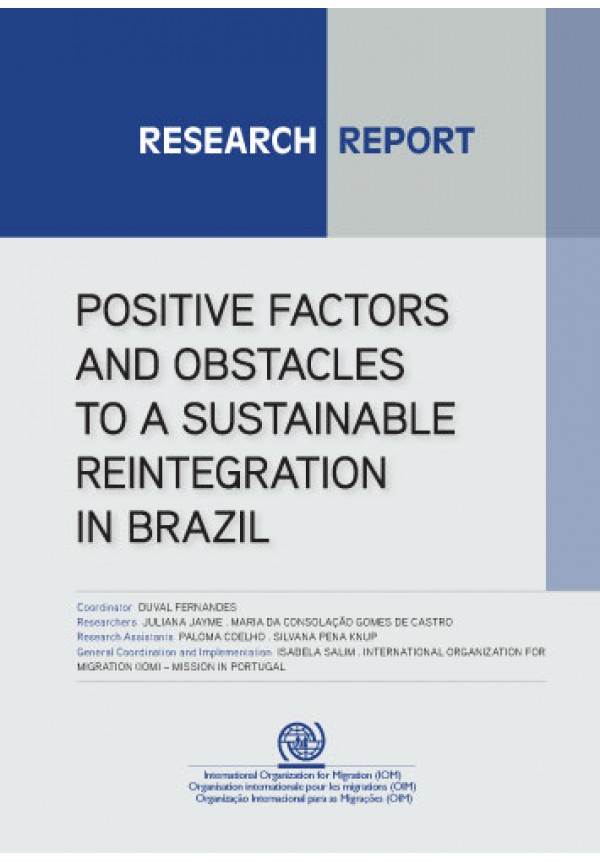
24 Sep 2015
Positive Factors and Obstacles to a Sustainable Reintegration in Brazil
The Study on “Positive Factors and Obstacles to a Sustainable Reintegration in Brazil” aims at taking stock of the reintegration support provided in Brazil during the last 4 years by the International Organization for Migration in Portugal, through its network of NGOs partners created in 2009 to assist returnees from Portugal in the framework of the Assisted Voluntary Return and Reintegration Programme (ARVoRe). In particular, the Study seeks to identify and analyse main internal factors (depending on the Programme) and external ones (independent of the Programme) which can favour or hamper an effective reintegration in the country of origin and, consequently, a sustainable return home.
In the context of this study, effective reintegration is intended as a less painful return, a faster reintegration into Brazilian society and in the labour market, acquired financial autonomy for the beneficiary and for his or her family and a sense of emotional stability and satisfaction in being back home, all of that contributing towards a sustainable return. In order to better understand whether post-return support led to an effective reintegration, the study sought to compare the reintegration outcomes of returnees who benefited from the local partners’ support and those who did not receive such support. Field research, which relied mainly on a qualitative methodology, has been conducted by the PUC Minas University of Minas Gerais, which interviewed 44 beneficiaries. Particular attention was also paid to external factors that may influence the reintegration process and to the impact of small businesses set up by returnees on the development of their local communities, in cases where the reintegration grant was used for micro-business set up purposes.
The study contributes to improving the IOM Assisted Voluntary Return and Reintegration Programme in Portugal. This report not only presents the results of that analysis, but also includes concrete suggestions for future planning of reintegration assistance activities, as well as for possible external and complementary actions to the programme.
This study falls under IOM Lisbon’s AVRR activities and was funded by the European Return Fund 2011 (RF 2011) and co-financed by the Portuguese Government.
Read More
- List of figures
- Introduction
- Description of the Assisted Voluntary Return and Reintegration Programme (ARVoRe)
- Partners
- The Research
- Description of the research stages
- Characterisation of the locus of research prior to commencement
- Brief characterisation of the States: locus of research
- Characteristics of immigrants before departure
- Results
- General results taking into account the three States surveyed
- IOM Assistance without support from the local partner: dialogue with the returnees
- Results by States
- Dialogue with partners
- Dialogue with local authorities and NGOs working with the migration issues
- Final Considerations
- Evaluation of the Assistance
- Internal and/or external Factors that contributed to or hindered reintegration, taking into account the impact of the developed activities in the community, local support and partnerships that enhance social reintegration in Brazil
- Recommendations
- References
- Annexes